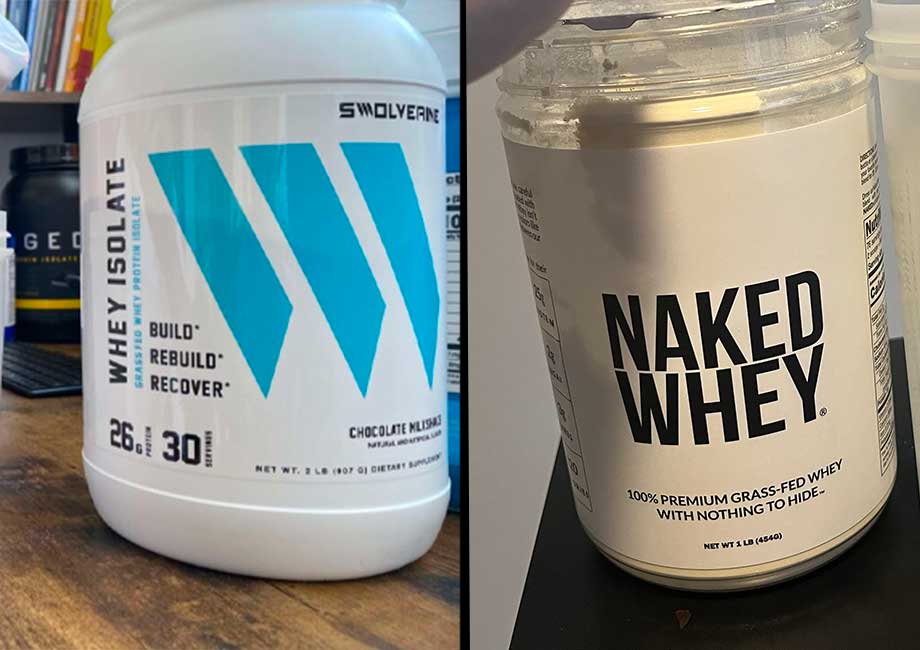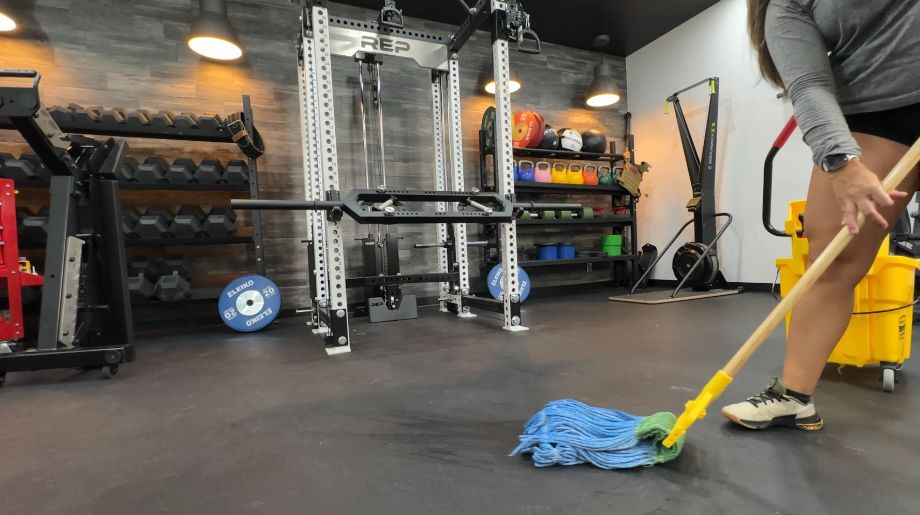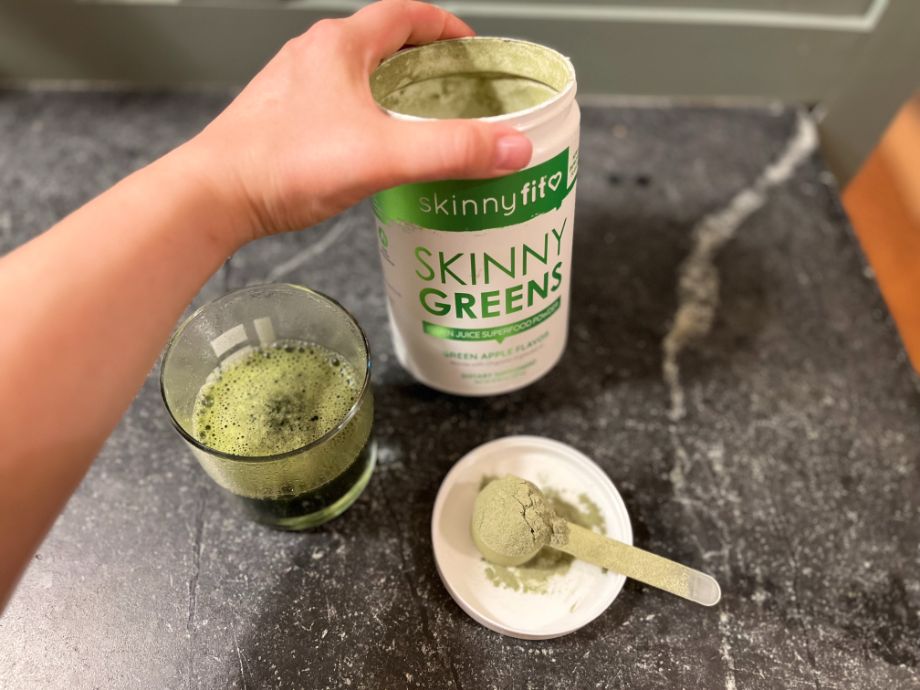Whether you just rocked a HIIT session, knocked out a mileage run, or pumped some iron in the gym, meeting your post-workout protein needs is a big deal. And while you can meet your needs through whole foods alone, sometimes it’s just not realistic because, well, life. Thankfully protein supplements are ready to fill in the gaps and help you reach your fitness goals.
Of course, not all supplements are created equal. One of our favorite sources of protein is whey protein. It’s so popular you can find it in protein bars, shakes, and powders. But when shopping for whey supplements, you’ll notice some are made with whey isolate and others with whey concentrate. Uh-oh. Which type of whey protein do you choose?
RELATED: What Is Whey Protein?
They each offer their own benefits, so what form of whey protein is the best whey protein? Not to worry. We’ll break down the science behind the whey protein isolate vs concentrate debate here.
Medical disclaimer: This article is intended for educational and informational purposes only. It is not intended as a substitute for medical advice. For health advice, contact a licensed healthcare provider.
Let’s Start Here: What Is Whey Protein?
When cow’s milk is processed to make cheese, enzymes are added to separate the curds from the liquid. Those curds go on to become delicious cheese, but the remaining liquid is a pretty coveted by-product, as well. Yep, you guessed it—it’s whey protein!
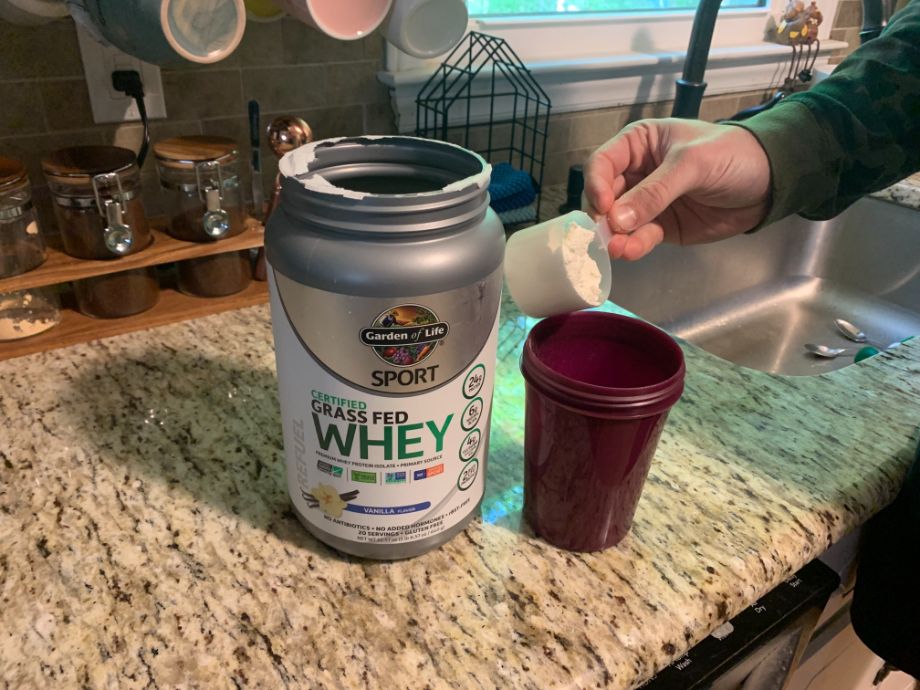
Only about 20% of milk’s proteins are whey proteins, while the other 80% are casein. Both are considered high-quality proteins, but whey tends to be more beneficial for producing lean muscle mass. Hence, it’s frequently used in popular protein supplements.
Because there are several steps involved in whey production, the product has different variations. The most common forms of whey protein are whey isolate and whey concentrate. Knowing the difference between the two can help you maximize your protein intake as you work towards those fitness goals.
Differences Between Whey Protein Isolate and Whey Protein Concentrate
There are several differences between whey isolate and whey concentrate, but the main difference is how they’re processed. So, let’s break it down. We already know that liquid whey is collected as a by-product during the cheese-making process, right? Right. From there, the liquid whey is dried, leaving behind whey concentrate powder. This whey protein powder comprises up to 80% protein by weight.
However, that concentrate can undergo further processing and filtration to reduce its fat and carbohydrate content even more. The remaining product is whey isolate, comprised of at least 90% protein by weight.
So to keep it simple: whey protein isolate has more grams of protein than the same measured scoop of whey concentrate. And, of course, that means it has less carbs and fat than whey concentrate.
Plus, these additional filtration steps remove lactose, so whey isolate has a lower lactose content than whey concentrate. Still, both forms of whey protein are usually acceptable in a lactose-intolerant diet.
Benefits of Whey Protein Isolate vs Concentrate
While whey isolate has a higher protein content than whey concentrate, both are considered complete proteins. Both forms of whey protein contain all nine essential amino acids, including the ever-important branched-chain amino acids, or BCAAs, needed for muscle gain. Score!
Prove it, you ask? No problem. A 2016 study1 examined the effects of whey protein supplements on exercising individuals. The study included both whey isolates and concentrates and found that they improved muscle growth and strength. Another study from 20172 found that regimented whey protein intake after exercise helped maintain a greater whole-body protein balance, thus enhancing exercise recovery.
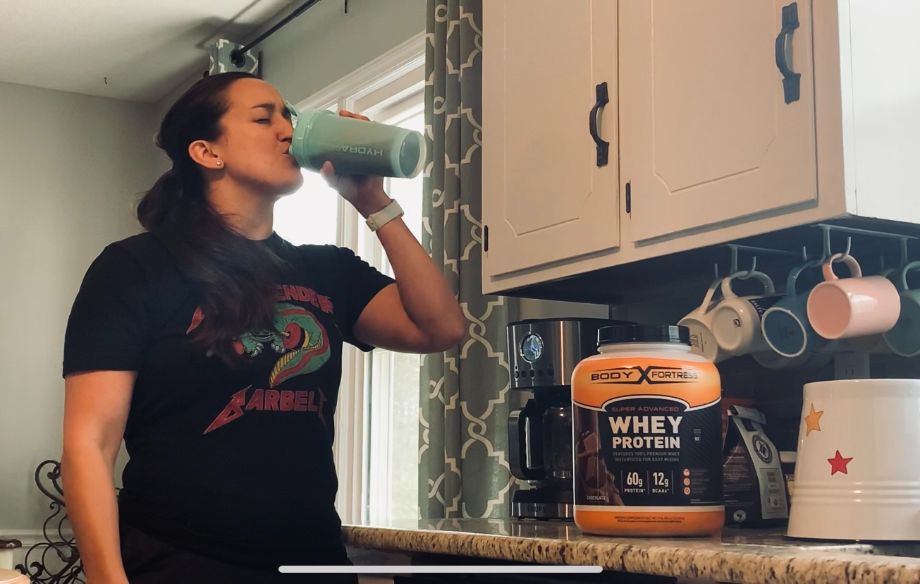
But if you’re curious about the specific health benefits each type offers, let’s check those out:
Whey Isolate
Whey protein isolate can help build muscle and promote muscle recovery when combined with a well-balanced diet and regular physical activity. It provides the amino acids, sometimes called building blocks, needed for muscle protein synthesis and the addition of fat-free mass.3
RELATED: Best Muscle Recovery Supplements
And since whey protein isolate undergoes more rigorous filtration, it is low in fat, carbohydrate, and lactose content. According to the United States Department of Agriculture4, the average scoop of whey protein isolate contains approximately 103 calories, 17 grams of protein, 8 grams of carbs, and less than 1 gram of fat.
Whey Concentrate
While the lower fat and carbohydrate content in whey isolate may benefit some people, the higher numbers in whey concentrate may benefit others. If you need help meeting all of your macronutrient needs, whey protein concentrate has got you covered.
The average scoop of whey protein concentrate will not contain as much protein as a whey isolate, but you’ll get more carbs and fat. Plus, with more fat and carbohydrate content, it offers a more creamy, desirable flavor. And it’s still rich in the BCAAs that can help promote muscle protein synthesis.
RELATED: Best-Tasting Protein Powder
Which One Should You Choose?
Whey protein isolate undergoes a more intensive filtration process than whey protein concentrate. As a result, it has a higher protein content than its concentrate counterparts. So, how does that influence your choice?
Well, you’ll find less fat and fewer grams of carbs in whey protein isolate, so that may be the better choice for those on a low-carb or low-fat diet or those with weight loss goals. And while both options are typically considered OK for those with lactose intolerance, whey isolate tends to be lower in lactose. It may be the better option for those who have more severe lactose intolerance.
RELATED: Best Protein Powder for Weight Loss
Along the same lines, whey isolate is often considered easier to digest than whey concentrate. Still, like any other protein, whey protein of any kind will be absorbed and used throughout the whole body.
However, don’t discount the importance of carbs and fat when it comes to whey. If you’re searching for the tastiest option, whey protein concentrate might be your safest bet. The higher carb and fat content gives whey concentrate a creamy, milk-like flavor. It can kick your protein shakes and smoothies up a notch.
And if you’re comparing prices, whey concentrate tends to be a little easier on the wallet. You can take advantage of those peptide benefits and stay on budget.
What About Creatine?
Creatine has entered the chat. You may have also come across some awesome types of creatine products in your research. But do you need creatine AND whey protein? Great question.
Creatine is an organic compound that is produced naturally in our muscle cells to aid energy production during high-intensity exercise. Many people take it in supplemental form to increase their muscle mass, strength, and overall exercise performance.
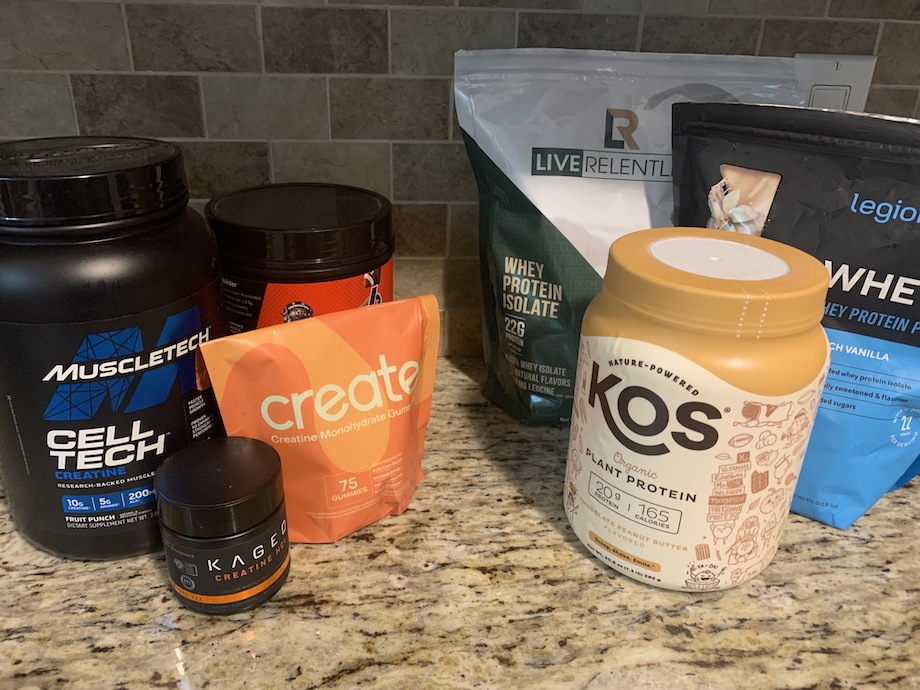
Whey protein and creatine both have extensive scientific backing. But while their effects can be similar in some regards, they are completely different compounds that work in different ways. They both have been shown to help increase muscle mass, but creatine increases your exercise capacity, while whey protein increases muscle protein synthesis. Whey protein does not influence your exercise performance5. No amount of protein can do what creatine is designed to do.
You might consider whey protein if you need help meeting your macro needs or creatine if you want to challenge your physical limits. Unfortunately, taking the two together6 doesn’t appear to enhance your results. However, if you want to try both, it’s generally considered safe for the average healthy adult.
RELATED: How To Take Creatine
Whey Protein Isolate vs Concentrate: Final Thoughts
Because whey protein is made up of several fast-digesting proteins, it’s a common ingredient in many different protein supplements. Both whey concentrate and isolate proteins are commonly found in protein bars, shakes, and powders, and both can support your fitness goals. Looking at the big picture, both can help you reach your fitness goals. It’s the slight variation in their nutrition profiles that may sway your decision one way or the other.
- Whey protein is a by-product of the cheese-making process.
- Whey isolate undergoes more processing and filtration than whey concentrate.
- Whey protein isolate has a higher percent protein by weight than whey concentrate.
- Whey isolate tends to have a lower lactose content.
- Whey protein concentrate tends to be less expensive than whey isolate.
- Both forms of whey protein can help build muscle and support muscle recovery.
- Creatine also helps support muscle-building efforts, but it works differently than whey protein.
If you have questions about whey protein concentrate vs isolate, consider meeting with a registered dietitian nutritionist. They can help you choose the right protein supplement for your needs, taking your diet and workout routine into consideration.
Whey Protein Isolate vs Concentrate: Q&A
What’s better, protein or creatine?
Both protein and creatine can help support your fitness goals. They just operate under different mechanisms. Protein powders can help you meet your macronutrient needs, while creatine helps produce energy in your muscle cells.
Are creatine and protein the same thing?
No. While protein and creatine can both support muscle growth and improve athletic performance, they operate differently. Whey protein provides your body with the building blocks to support muscle growth. Creatine, on the other hand, aids in energy production.
Should I take creatine or whey protein?
That answer may vary from person to person. If you have a tough time with protein intake from whole foods alone, you may need to opt for whey protein. However, creatine might be your answer if you need to increase your phosphocreatine stores to produce more energy.
Why is creatine better than whey protein?
Neither is necessarily better than the other, they simply serve different purposes and one may be more relevant to your specific goals. Creatine increases your exercise capacity, while whey protein increases muscle protein synthesis. They can both serve a purpose in your supplement routine but do not appear to enhance one another’s purported benefits.
These statements have not been evaluated by the Food and Drug Administration. This product is not intended to diagnose, treat, cure, or prevent any diseases.
References
- Naclerio, F., & Larumbe-Zabala, E. (2016). Effects of Whey Protein Alone or as Part of a Multi-ingredient Formulation on Strength, Fat-Free Mass, or Lean Body Mass in Resistance-Trained Individuals: A Meta-analysis. Sports medicine (Auckland, N.Z.), 46(1), 125–137. https://doi.org/10.1007/s40279-015-0403-y
- West, D. W. D., Abou Sawan, S., Mazzulla, M., Williamson, E., & Moore, D. R. (2017). Whey Protein Supplementation Enhances Whole Body Protein Metabolism and Performance Recovery after Resistance Exercise: A Double-Blind Crossover Study. Nutrients, 9(7), 735. https://doi.org/10.3390/nu9070735
- Duarte, N. M., Cruz, A. L., Silva, D. C., & Cruz, G. M. (2020). Intake of whey isolate supplement and muscle mass gains in young healthy adults when combined with resistance training: a blinded randomized clinical trial (pilot study). The Journal of sports medicine and physical fitness, 60(1), 75–84. https://doi.org/10.23736/S0022-4707.19.09741-X
- Beverages, Whey Protein Isolate. FoodData Central. (2019, April 1). https://fdc.nal.usda.gov/fdc-app.html#/food-details/173177/nutrients
- Forbes, S. C., & Bell, G. J. (2020). Whey protein isolate or concentrate combined with concurrent training does not augment performance, cardiorespiratory fitness, or strength adaptations. The Journal of sports medicine and physical fitness, 60(6), 832–840. https://doi.org/10.23736/S0022-4707.20.10314-1
- Outlaw, J., Burks, B., Hayward, S., Holt, J., Stone, M., Stai, B., Cox, B., Foster, C., Taylor, L., & Wilborn, C. (2013). Effects of post-exercise whey protein vs. whey protein plus creatine consumption in females. Journal of the International Society of Sports Nutrition, 10(Suppl 1), P20. https://doi.org/10.1186/1550-2783-10-S1-P20


